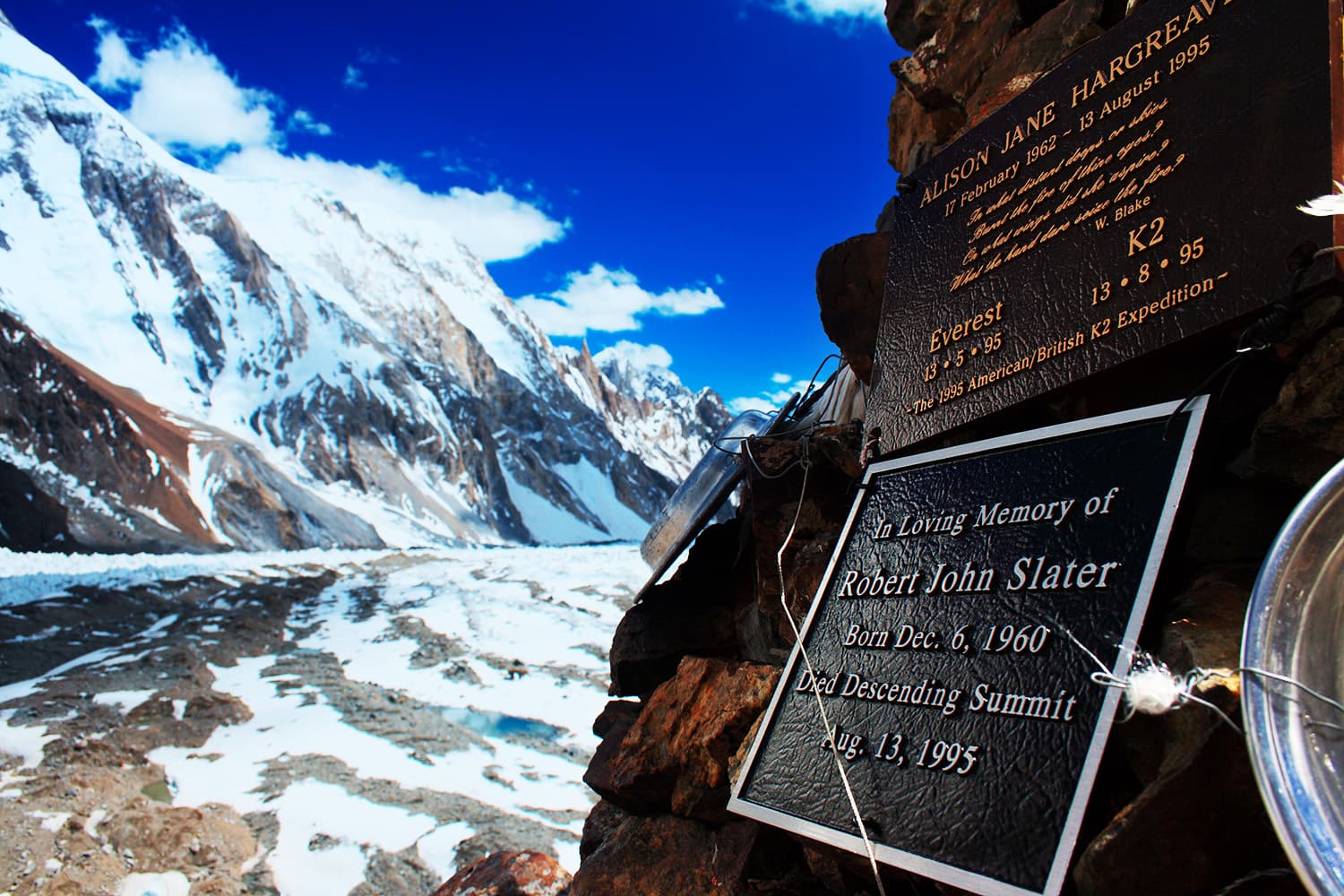Trekking: Honouring the fallen
After many days of a gruelling 63-kilometre trek on Baltoro glacier — one of the longest glaciers on earth outside the Polar Regions — my team and I reached Concordia.
My destination, however, was ahead of it: Gilkey Memorial, which is located near K2’s base camp. Concordia has become a familiar name and a popular destination for local adventurers, but only a few choose to hike the extra miles to Gilkey Memorial — a memorial dedicated to ‘fallen’ mountaineers.

After crossing a few thin ice walls, we stepped onto Godwin-Austen glacier and left Baltoro behind — the Godwin-Austen Glacier emerges from the foothills of K2 and joins Baltoro Glacier at Concordia.
Near the base of K2 stands the Gilkey Memorial — a testament to team spirit and the camaraderie of mountaineers
Godwin-Austen was a difficult climb and in the afternoon we reached the base camp of Broad Peak, K2’s envious ‘neighbour’. Both peaks are above 8,000 meters but it is K2 that has gained legendary status.

After an hour or so, we spotted something shining in the light. I zoomed in with a telephoto lens to confirm that it was indeed the Gilkey Memorial. However, there was an obstacle in our way. The only path to the memorial was on the other side of the Godwin-Austen Glacier but we were almost at the middle point of a highly crevassed glacial territory.
We left the brink of the stony surface and started to march, each step generating the sound of crushing little particles of ice. We climbed slowly and finally reached the foothills of K2. Gilkey Memorial was now a 75-degree ascent and a couple of hours away.

A look at the shiny, metallic memorial plaques on the erected pillars of stones made me forget my challenging climb of the last two hours.
Erected to honour the fallen mountaineers, Gilkey Memorial was named after American climber and geologist Arthur Karr, more well-known as Art Gilkey. In an ill-fated K2 climbing expedition in 1953, Gilkey became seriously ill. His team decided to abandon the expedition but was caught in an avalanche on the climb down.

While the rest of his team members survived, Gilkey wasn’t so lucky. His remains were recovered in 1993 from a melting glacier.

It was rumoured that the American mountaineer released himself from the ropes of his stretcher in order to save the lives of his team members. The entire expedition was highly praised for their team spirit and friendship.

The memorial, as such, encapsulates this spirit of camaraderie and courage among mountain climbers. Included among the plaques is that of Robert John Slater’s who perished while descending K2 — after reaching the summit — without bottled oxygen.

Another one is that of British female climber, Alison Hargreaves. Her solo summit of Mount Everest — and that too without supplemental oxygen — brought her fame. She was the first female climber to summit all the Great North Faces of the Alps in a single season, a feat which included six peaks. She was pregnant with her first child when she climbed Eiger’s north face and a mother of three when she died during her descent of K2 from its summit.


Jeff Lakes, a Canadian climber and Hargreaves’ teammate is also memorialised. Unable to reach the summit, he decided to return to the lower camp but eventually died after being exposed for 36 hours to minus 28.8oC weather.

The sunset reminded us that like many of the climbers who have died before us, we too should descend soon. When we reached the middle of the glacier, I saw the perfect sunset of my life — Mitre peak of Concordia was caught in the last streaks of the sun.

It took us more than 15 hours to ascend and descend the Godwin-Austen Glacier, and half of our descent was in total darkness. We covered the last stretch with the help of headlamps, but sudden rainfall further reduced our visibility. Had luck not been with us, perhaps, somebody might have put our memorial plaques on Gilkey Memorial by now.





Published in Dawn, Sunday Magazine, October 30th, 2016


